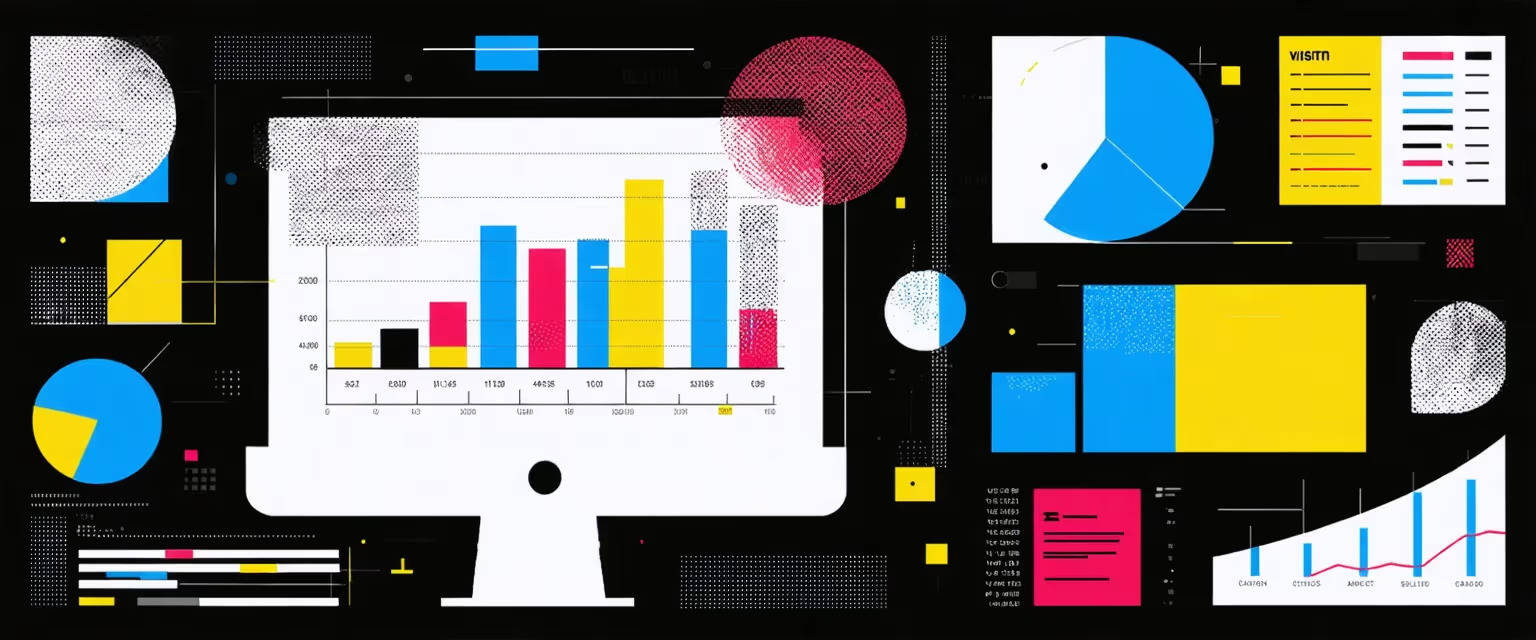Manual settlement analysis consumes valuable hours for litigation attorneys, time better spent shaping strategy and advising clients. Reviewing discovery, researching precedents, and estimating outcomes pulls you away from critical legal work.
Thanks to advancements in agentic AI, this burden can now be fully automated with speed and accuracy.
Datagrid’s data connectors integrate seamlessly with your systems, enabling AI agents to assess data, evaluate settlement options, and deliver real-time insights. This article explores how AI agents automate settlement analysis for litigation attorneys.
Overview of Settlement Analysis in Litigation
Settlement analysis is the systematic evaluation of a case's strengths, weaknesses, and potential outcomes to determine optimal negotiation positions. This data-driven process involves assessing legal arguments, calculating potential damages, weighing litigation costs against potential recoveries, and analyzing opposing counsel's likely strategy.
The goal? Finding a realistic settlement range that serves client interests while acknowledging legal realities.
Effective settlement analysis goes beyond simple calculations. It demands understanding jurisdiction-specific tendencies, judicial preferences, and the human factors shaping outcomes.
Case complexity affects the analytical approach. Personal injury claims may utilize AI to analyze medical records and police reports, while complex commercial disputes require interpreting intricate contractual relationships against industry-specific regulations.
Attorneys increasingly pair their judgment with AI-powered systems that process thousands of similar cases to spot patterns invisible to the human eye. These tools quickly extract key information from legal documents, identify potential risks, and uncover opportunities that might otherwise slip through the cracks.
Why Comprehensive Settlement Analysis is Essential for Litigation Success
Thorough settlement analysis delivers far more than basic case valuation. By evaluating legal risks, opposing party behavior, and broader precedent trends, it builds the foundation for confident decision-making throughout litigation.
With data-driven insights, attorneys can determine whether early settlement, aggressive negotiation, or proceeding to trial best serves client interests. This strategic clarity directly impacts client satisfaction and case outcomes.
Effective settlement analysis also supports cost management by avoiding unnecessary trial expenses and poorly structured agreements. By anticipating likely settlement ranges and preparing fallback positions, attorneys navigate negotiations with greater confidence and flexibility.
The reputation benefits speak for themselves. Law firms known for data-driven settlement analysis build stronger client relationships through transparent communication and consistently favorable outcomes.
The value grows over time, too. By systematically evaluating settlements across multiple cases, firms identify patterns that inform broader litigation strategies. This continuous improvement cycle leads to increasingly accurate predictions and better results.
AI-powered predictive analytics now enable attorneys to forecast judicial rulings and assess litigation risks with unprecedented precision, transforming settlement analysis from art to science.
What’s Slowing Down Your Settlement Analysis?
Traditional settlement analysis involves several time-consuming tasks that create bottlenecks and delay case progress.
Review of Large Volumes of Discovery Documents
Attorneys often spend days manually reviewing contracts, emails, financial records, and other discovery materials. This tedious process delays analysis and increases the risk of missing crucial details that could significantly impact settlement value.
The challenge compounds with each additional document, creating a near-impossible task for complex litigation with thousands of potentially relevant files.
Research of Precedents and Case Law
Identifying relevant legal precedents demands hours searching through databases, reading court opinions, and synthesizing information from multiple sources. The volume of potential precedents, especially in complex cases, often turns this essential research into a major time sink.
Attorneys must not only find relevant cases but also analyze their applicability to current facts, a process that becomes increasingly difficult as case law evolves.
Estimation of Damages and Cost-Benefit Analysis
Calculating potential damages requires considering economic losses, non-economic impacts, and future consequences. This complex process typically involves multiple scenario models and calculations that become increasingly time-intensive when done manually.
Cost-benefit analysis further complicates matters, requiring attorneys to balance potential recovery against litigation costs, risks, and timing considerations.
Predicting Opposing Counsel's Strategy
Creating effective negotiation strategies means anticipating opposing counsel's tactics through scenario modeling. This process requires constant adjustments as new information emerges, consuming valuable attorney time that could be spent on client communication or high-level strategy.
The unpredictability of human behavior makes this particularly challenging, as attorneys must consider not just legal factors but also personalities and negotiation styles.
How AI Agents Automate Settlement Analysis for Litigation Attorneys
AI tools are transforming settlement analysis, automating previously labor-intensive tasks while providing deeper insights than traditional methods.
Automating Data Extraction from Legal Documents
AI systems streamline document review processes, excelling at processing vast document collections and extracting critical information in minutes rather than days. These tools can analyze contracts, discovery materials, and case files simultaneously, ensuring no important details affecting settlement value are missed.
Current systems can process tens of thousands of documents based on simple prompts outlining key legal and factual issues. This comprehensive review happens with remarkable speed and consistency, dramatically reducing the risk of human error or oversight.
Synthesizing Case Law and Precedent
AI agents quickly identify relevant precedents and extract key holdings from massive legal databases, transforming legal brief preparation. By recognizing patterns across similar cases, these systems provide insights about settlement trends and likely outcomes that might not be apparent through manual research.
This capability builds stronger arguments by identifying successful approaches in comparable cases and highlighting jurisdictional tendencies that might influence settlement negotiations.
Modeling Likely Outcomes to Estimate Fair Settlement Ranges
Using historical data, case specifics, and even information about judges and opposing counsel, AI systems forecast potential outcomes with increasing accuracy. These predictions help attorneys determine optimal settlement ranges based on data rather than intuition.
AI-powered predictive analytics can forecast litigation outcomes, guide strategy development, and offer insights into judicial behavior patterns, allowing attorneys to approach negotiations with data-backed confidence.
Simulating Opposing Party Behavior and Negotiation Tactics
Advanced AI systems can model opposing counsel's likely strategies based on their past behavior, public statements, and approaches in similar cases. This simulation capability helps attorneys anticipate negotiation tactics and prepare effective responses.
By gaming out various scenarios, legal teams develop more robust settlement strategies that account for multiple possible developments during negotiations.
Datagrid for Legal Professionals
Legal work involves managing vast document repositories and time-sensitive workflows. Datagrid's AI platform delivers specialized solutions for these challenges:
Intelligent Document Review
Process thousands of legal documents simultaneously, extracting key clauses, obligations, dates, and parties from contracts and discovery materials with unprecedented speed. This allows your team to focus on analysis rather than manual review.
Case Research Enhancement
Deploy AI agents to analyze case law across multiple jurisdictions, identifying relevant authorities and legal arguments tailored to your specific matters. These comprehensive research capabilities help build stronger cases faster.
Due Diligence Acceleration
Streamline M&A due diligence by automatically reviewing corporate documents, identifying potential risks, and creating summary reports. This dramatically reduces the time required for complex transactions.
Contract Management Automation
Extract critical terms, renewal dates, and obligations from your contract portfolio, enabling proactive deadline management and compliance monitoring. Stay ahead of contractual obligations and reduce risk.
eDiscovery Optimization
Reduce discovery costs by having AI agents pre-screen documents for relevance, privilege, and confidential information before attorney review. This significantly cuts billable hours while improving accuracy.
Legal Brief Preparation
Analyze past filings, court decisions, and opposing counsel arguments to generate comprehensive research summaries that accelerate brief writing. Craft more persuasive arguments backed by thorough research.
Compliance Monitoring
Stay ahead of regulatory changes with AI agents that continuously scan for new regulations and compare them against client practices to identify potential exposure. This proactive approach mitigates risks before they become issues.
By implementing Datagrid in your practice, litigation attorneys can focus on high-value analysis and client counseling while AI handles document-intensive tasks that traditionally consume valuable time and resources.
Simplify Legal Tasks with Datagrid's Agentic AI
Don't let data complexity slow down your team. Datagrid's AI-powered platform is designed specifically for teams who want to:
- Automate tedious data tasks
- Reduce manual processing time
- Gain actionable insights instantly
- Improve team productivity
See how Datagrid can help you increase process efficiency.













